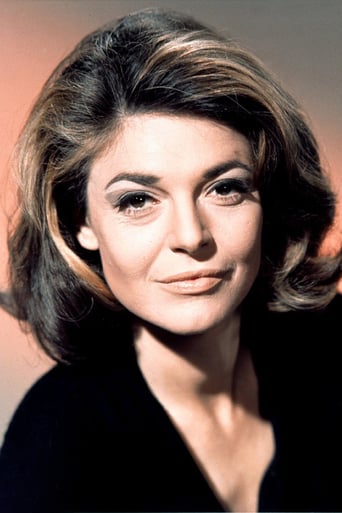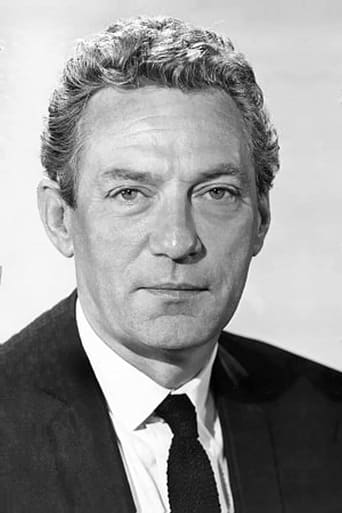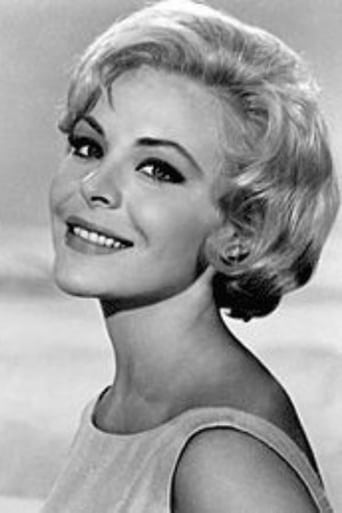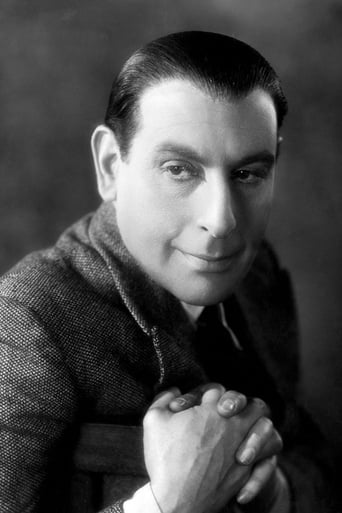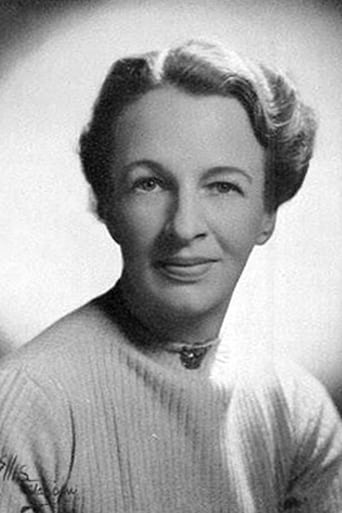christopher-underwood
So, here I am writing a piece on this film on the 100th anniversary of women gaining the right to vote in the UK and an issue at the heart the whole man/women debate is writ large. Women having children, as many as possible in some cultures lest some should die, and men off fertilising all and sundry to help the group or clan or tribe stay healthy all seems quite 'natural' in a certain context and not so in others. In The Pumpkin Eater it would seem that writer Penelope Mortimer, who had many children herself is writing here, at least to some extent about her own experiences. Harold Pinter has created a marvellous script from the original novel but it is still the central woman struggling with her need(?) to have more and more children, with various partners if necessary, and find that life is passing her by because she doesn't fully relate to those children once they are born. She is more focused on the possibility of having more. Indeed she has a resident maid/nurse to look after the children while she mopes about wondering what her husband is doing. It turns out he is happily fulfilling the needs of other women as well as making some considerable effort entertaining and educating his kids at home. He works, she doesn't, she is seen as long suffering, he is seen as a philanderer. To some extent this brilliantly written and performed piece is a reflection of the end of the fifties and the beginning of a more flexible and tolerant sixties but whether the fundamental differences between the sexes will be transformed still remains to be seen. Indeed, we talk today about equal pay but also want to ensure allowance is made for women having children and even allowing later for some consideration during the menopause. Goodness knows what workplace and home-life complications the LGBT movement will create but, at least, hopefully there will be someone as good as Mortimer and Pinter to write about it.
robert-temple-1
This is probably the finest film ever directed by Jack Clayton. It is a classic and a genuine masterpiece. The lead performance by Anne Bancroft won an Oscar nomination but was so amazing that it really deserved ten Oscars, and is probably the most inspired and powerful performance of her career. One reason why the film has been largely forgotten today is that no one understands the title. It comes from the nursery rhyme: 'Peter Peter pumpkin-eater/Had a wife and couldn't keep her./ He put her in a pumpkin shell/ And there he kept her very well.' At the time of the novel and film, most British people knew this nursery rhyme very well indeed from their childhoods, whereas today it is possible that no one under 50 has ever heard it. Knowing nothing about the film and merely seeing its incomprehensible title, it is not the sort of DVD you would buy. Nor do people today tend to remember Jack Clayton (1921-1995), one of the best directors ever produced by Britain. I only knew him towards the end of his life, when we discussed a project together, and he was a very congenial fellow. I always greatly admired his film of THE GREAT GATSBY (1974), and his ROOM AT THE TOP (1959) was a classic of its time as well. But Jack's genius was never sufficiently appreciated, in my opinion, and he had trouble getting his projects funded. In this film, there are some splendid cinematic moments. His dissolve into the first of the flashbacks near the beginning of this film is one of the finest I have ever seen on screen. Anne Bancroft, who has been wandering round her London house looking at the furniture in a meditative mood, turns her head to the left in a close shot and the right side of screen whites out beside her. Then we see her as a younger woman slowly appear in the whited-out area, on the day she first met her third husband, played by Peter Finch. The elegiac mood is greatly enhanced by a superb score by Georges Delerue, and this recurring flashback-theme features a sad oboe to great effect, reminding us of Vivaldi. In those days there were no monitors, and a director peeked through the camera at the polite invitation of his cinematographer and then stood closely beside it, practically breathing down the nostrils of his actors. That is what I call real film-making, not the ridiculous long-distance approach of today, where directors sit remotely watching a little screen and call that directing. No wonder they so often do a bad job. At that time a director relied very heavily indeed upon his camera operator, much more so than now. And Brian West, who operated for this film, was one of the best, rivaling Denys Coop at that time. The cinematographer was the great Ossie Morris. I knew Morris and West and they were both such fine fellows, as most cameramen were in those days when they all wore jackets and ties to work and behaved like perfect gentlemen at a formal tea when on set. Every shot in this film is perfect, every camera movement is perfect. This film should be used for analysis in all film schools as a specimen of how to make the perfect film. There is such a sensational scene by the brilliant and scary actress Yootha Joyce, who died aged only 53 of alcoholism, in 1980. Once seen, never forgotten, as the woman in the hairdresser's! Even though he was such an objectionable person, I am forced to admit that Harold Pinter's screenplay is brilliant, and his dialogue is perfect. He may have been the world's most annoying man, but he was an inspired playwright and screenwriter, that's for sure. James Mason does a superb job of playing a sleazy and perverse film producer. Maggie Smith is outstanding in an early role as a woman who moves in with Finch and Bancroft; her cameo is simply unforgettable. This film is based upon the best-selling and partially autobiographical British novel of the same title by Penelope Mortimer (1918-1999), who at the time was the estranged wife (they did not divorce until 1971) of playwright and TV writer John Mortimer (1923-2009), who was also a very prominent lawyer. They were the parents of the extremely talented film actress Emily Mortimer, who gave such an electrifying performance in TRANSSIBERIAN (2008, see my review). Penelope was also the mother of the actress Caroline Mortimer (born 1942) by her first husband. Caroline is apparently portrayed as the eldest daughter in this film. My wife and I met each other for the first time in the house where Penelope lived at the time she wrote this novel. Long ago I knew John slightly. I recall going to a party at his house in Little Venice in London, on Blomfield Road, across the canal from Edward Fox, and down the road from Fred Zinneman and Christopher Fry. A few minutes away on Randolph Crescent was the house where Orson Welles always stayed when he came to town. At that time John's girlfriend was a beautiful and fascinating Israeli girl named Ziva. She and I chatted a great deal and she flirted with me outrageously. John didn't notice because he was too busy pouring whiskeys and gin and tonics for his important guests, and later he got rather drunk. He was exceptionally clever but he could be a bit of a windbag sometimes, and he was a compulsive womanizer, and certainly went too far with that, losing a lot of people's respect. This film is an exquisitely sensitive portrayal of a woman who can only be happy when she is pregnant, and whose life and relationships are examined with a relentless microscope. It is a magnificent achievement, and should really be revived in these days when women's lives have become so much more important to a wide public.
wisecarol
This script was obviously written by a philandering script writer. Anne Bancroft's character is having a perfectly enjoyable life until her husband moves one of his many girlfriends into their home with 6 of their 8 children. His constant philandering is thrown in Bancroft's face and she's the one who is sent to the shrink for hating the fact that she feels stuck with this pig. Her depression is blamed on her for having so many children. Hey Moron, this was pre-birth control pills and most families were this size. And when the shrink bandages her up and gets her back on her feet, the creep knocks her up again. Now she's really portrayed as an evil witch for letting that happen. The creep, realizing that the shrink can't fix his latest f-up, sends her to the MD to get her uterus ripped out. That'll teach her. The only reason I kept watching this tripe was for Bancroft's performance. Only she could've made this piece of crap even slightly palatable. The ending was laughable and just proved that this was written by a male script writer with absolutely no talent and total self-absorption.



